OCZ Vector (256GB) Review
by Anand Lal Shimpi on November 27, 2012 9:10 PM ESTTimes are changing at OCZ. There's a new CEO at the helm, and the company is now focused on releasing fewer products but that have gone through more validation and testing than in years past. The hallmark aggressive nature that gave OCZ tremendous marketshare in the channel overstayed its welcome. The new OCZ is supposed to sincerely prioritize compatibility, reliability and general validation testing. Only time will tell if things have changed, but right off the bat there's a different aura surrounding my first encounter with OCZ's Vector SSD.
Gone are the handwritten notes that accompanied OCZ SSD samples in years past, replaced by a much more official looking letter:
The drive itself sees a brand new 7mm chassis. The aluminum colored enclosure features a new label. Only the bottom of the SSD looks familiar as the name, part number and other details are laid out in traditional OCZ fashion.
Under the hood the drive is all new. Vector uses the first home-grown SSD controller by OCZ. Although the Octane and Vertex 4 SSDs both used OCZ Indilinx branded silicon, they were both based on Marvell IP - the controller architecture was licensed, not designed in house. Vector on the other hand uses OCZ's brand new Barefoot 3 controller, designed entirely in-house.
Barefoot 3 is the result of three different teams all working together. OCZ's UK design team, staffed with engineers from the PLX acquisition, the Korea design team inherited after the Indilinx acquisition, and folks at OCZ proper in California all came together to bring Barefoot 3 and Vector to life.
The Barefoot 3 controller integrates an unnamed ARM Cortex core as well as an OCZ Aragon co-processor. OCZ isn't going into a lot of detail as to how these two cores interact or what they handle, but multi-core SoCs aren't anything new in the SSD space. A branded co-processor is a bit unusual, and I suspect that whatever is responsible for Vector's distinct performance has to do with this part of the SoC.
Architecturally, Barefoot 3 can talk to NAND across 8 parallel channels. The controller is paired with two DDR3L-1600 DRAMs, although there's a pad for a third DRAM for use in the case where parity is needed for ECC.
Hardware encryption is not presently supported, although OCZ tells us Barefoot 3 is more than fast enough to handle it should a customer demand the feature. Hardware encryption remains mostly unused and poorly executed on client drives, so its absence isn't too big of a deal in my opinion.
OCZ does its own NAND packaging, and as a result Vector is home to a sea of OCZ branded NAND devices. In reality you're looking at 25nm IMFT synchronous 2-bit-per-cell MLC NAND, just with an OCZ silkscreen on it. There's no NAND redundancy built in to the drive as OCZ is fairly comfortable with the error and failure rates at 25nm. The only spare area set aside is the same 6.8% we see on most client drives (e.g. a 256GB Vector offers 238GB usable space in Windows).
| OCZ Vector | |||||
| 128GB | 256GB | 512GB | |||
| Sequential Read | 550 MB/s | 550 MB/s | 550 MB/s | ||
| Sequential Write | 400 MB/s | 530 MB/s | 530 MB/s | ||
| Random Read | 90K IOPS | 100K IOPS | 100K IOPS | ||
| Random Write | 95K IOPS | 95K IOPS | 95K IOPS | ||
| Active Power Use | 2.25W | 2.25W | 2.25W | ||
| Idle Power Use | 0.9W | 0.9W | 0.9W | ||
Regardless of capacity, OCZ is guaranteeing the Vector for up to 20GB of host writes per day for 5 years. The warranty on the Vector expires after 5 years or 36.5TB of writes, whichever comes first. As with most similar claims, the 20GB value is pretty conservative and based on a 4KB random write workload. With more realistic client workloads you can expect even more life out of the NAND.
Despite being built on a brand new SoC, there's a lot of firmware carryover from Vertex 4. Indeed if you look at the behavior of Vector, it is a lot like a much faster Vertex 4. OCZ does continue to use its performance mode that enables faster performance if less than 50% of the drive's capacity is used, however in practice OCZ seems to rely on it less than in the Vertex 4.
The design cycle for Vector is the longest OCZ has ever endured. It took OCZ 18 months to bring the Vector SSD to market, compared to less than 12 months for previous designs. The additional time was used not only to coordinate teams across the globe, but also to put Vector through more testing and validation than any previous OCZ SSD. It's impossible to guarantee a flawless drive, but doing considerably more testing can't hurt.
The Vector is available starting today in 128GB, 256GB and 512GB capacities. Pricing is directly comparable to Samsung's 840 Pro:
| OCZ Vector Pricing (MSRP) | ||||||
| 64GB | 128GB | 256GB | 512GB | |||
| OCZ Vector | - | $149.99 | $269.99 | $559.99 | ||
| Samsung SSD 840 Pro | $99.99 | $149.99 | $269.99 | $599.99 | ||
OCZ is a bit more aggressive on its 512GB MSRP, otherwise it's very clear what OCZ views as Vector's immediate competition.


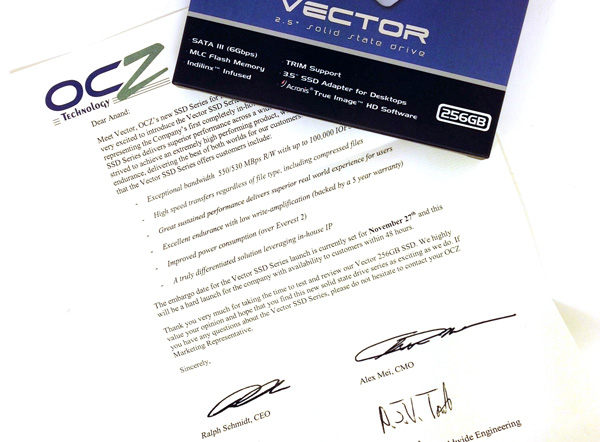
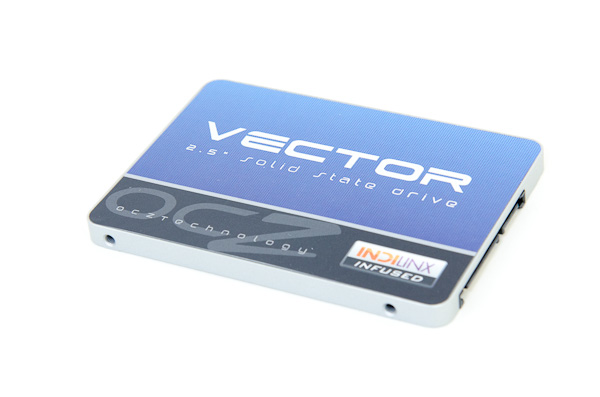
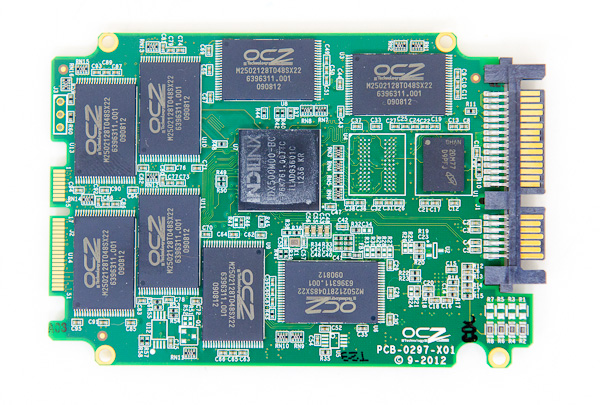
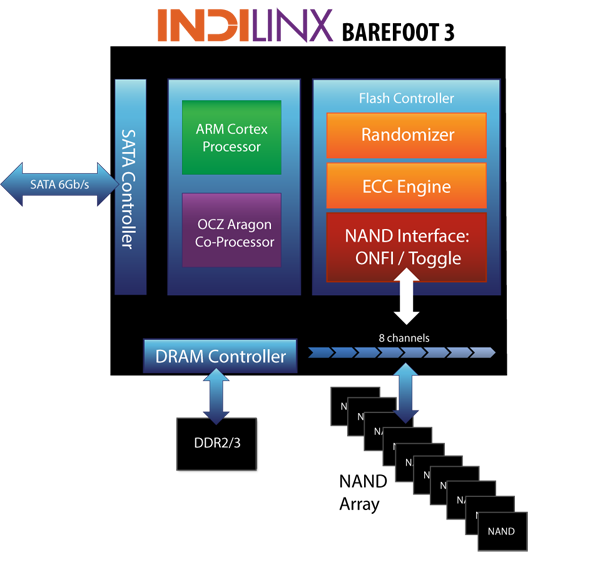
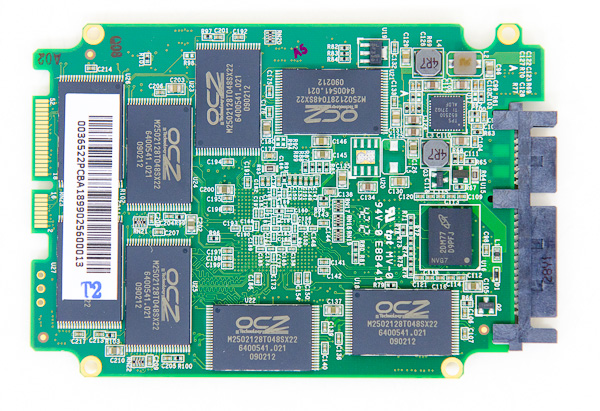
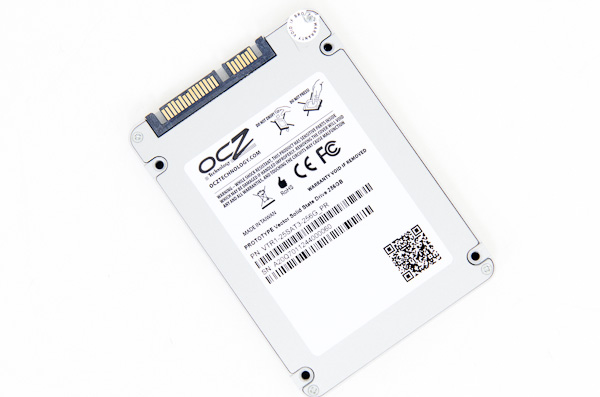








151 Comments
View All Comments
Death666Angel - Friday, November 30, 2012 - link
In one of the podcasts (E10?) Anand talks about how SF controllers have less issues with these IO latency worst case scenarios. So it's not necessarily an Intel feature, but a SF feature and the graph might look the same with a Vertex 3 etc.Also, it may behave differently if it were filled with different sequential data at the start of the test and if the test were to run longer. I wouldn't draw such a positive conclusion from the test Anand has done there. :)
jonjonjonj - Thursday, November 29, 2012 - link
did they have to name their 2 drives Vector and Vertex? they couldnt have picked 2 names that looked more alike if they tried. i have to image this was done on purpose for some reason that i can think of. now that ocz has its own controller are they retiring the vertex or will they just use barefoot controllers in vertex ssd's going forward?deltatux - Sunday, December 2, 2012 - link
While it is great that the OCZ Vector is able to compete with the Samsung SSDs in terms of performance, but OCZ's past reliability records have been iffy at most, they fail prematurely and RMA rates have been quite high. I've known countless people suffering issues with OCZ drives.I'll wait for a bit before recommending OCZ drives to anyone again due to reliability issues if the OCZ Vector can meet the reliability of Corsair, Intel or Samsung drives. Until then, I'll keep recommending Samsung drives as they exceed in performance and reliability than most manufacturers.
rob.laur - Sunday, December 2, 2012 - link
If you check the review of the Vector on the hardwarecanucks website, page 11 you will see the Vector AND Vertex crush every other drive listed when filled with over 50% capacity. This is probably the most important bench to judge SSD performance by."While the Vector 256GB may not have topped our charts when empty, it actually blasted ahead of every other drive available when there was actual data housed on it. To us, that’s even more important than initial performance since no one keeps their brand new drive completely empty. "
jwilliams4200 - Sunday, December 2, 2012 - link
If you are talking about this:http://www.hardwarecanucks.com/forum/hardware-canu...
you will note that the Samsung 840 Pro is conspicuously absent from the list, so we do not know how the Vector fares against its most difficult competitor.
rob.laur - Sunday, December 2, 2012 - link
you are right and I wish they did include the 840 Pro but they didn't. Point is compared to all those other SSDs/Controllers, the BF3 clearly outperforms everything in the real world with actual data on the drive. The 840 Pro uses faster nand than the Vector yet both drives are pretty much equal. The toshiba toggle version of Vector cant come soon enough!jwilliams4200 - Monday, December 3, 2012 - link
The Samsung 840 Pro is significantly faster (about 33%) than the Vector for 4KiB QD1 random reads. This is an important metric, since small random reads are the slowest operation on a drive, and if you are going to take just one figure of merit for an SSD, that is a good one.rob.laur - Monday, December 3, 2012 - link
well according to most sites, the Vector beats it on writes and in mixed read/write environments especially with heavy use. Not to mention the 840 takes a long time to gets its performance back after getting hammered hard whereas the Vector recovers very quickly.jwilliams4200 - Monday, December 3, 2012 - link
First of all, the type of heavy writes I believe you are referring to are a very uncommon workload for most home users, even enthusiasts. Reads are much more common.Second, I have seen only one credible study of Vector use with heavy writes, and the Samsung 840 Pro does a better than the Vector with steady-state, heavy writes:
http://www.anandtech.com/show/6363/ocz-vector-revi...
I have seen nothing to suggest the Vector recovers more quickly. If anything, there is circumstantial evidence that the Vector has delayed recovery after heavy writes (assuming the Vector is similar to the Vertex 4) due to the Vector's quirky "storage mode" type behavior:
http://www.tomshardware.com/reviews/vertex-4-firmw...
jwilliams4200 - Monday, December 3, 2012 - link
My first link was meant to go to storagereview:http://www.storagereview.com/ocz_vector_ssd_review